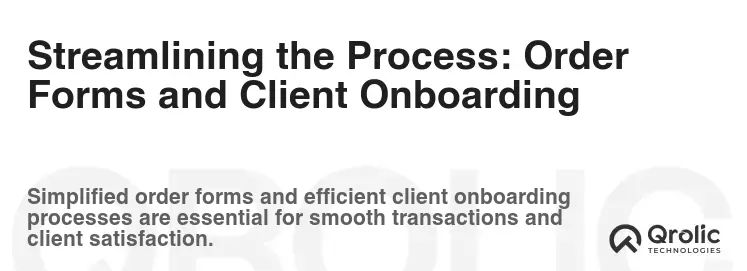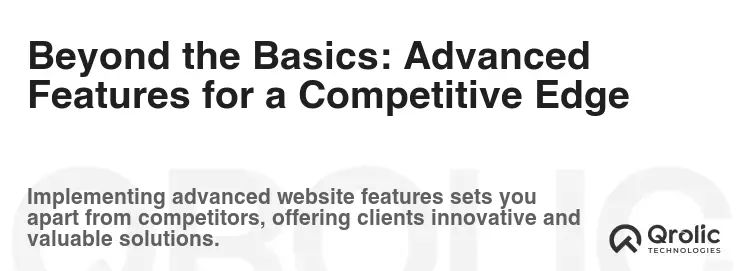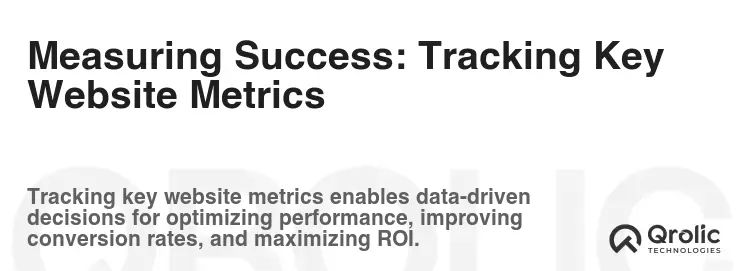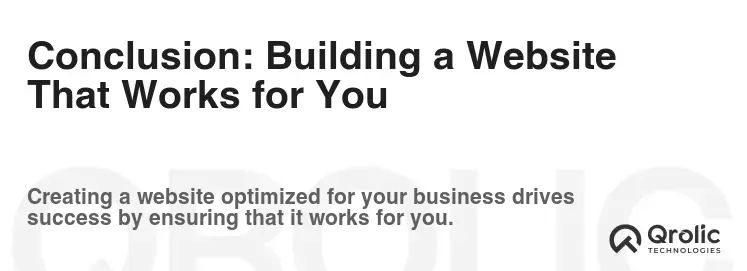Quick Summary:
- Build a professional, user-friendly, and mobile-ready website.
- Showcase your work, testimonials, and simplify client onboarding.
- Optimize your site for search engines and track performance.
Table of Contents
- The Foundation: Building a Resume Writing Website That Converts
- Why Your Website is Your Most Valuable Resume Writing Asset
- Essential Elements of a High-Converting Resume Writing Website
- Showcasing Your Expertise: The Power of Samples Showcase and Testimonials
- Building Trust with a Compelling Samples Showcase
- Leveraging the Power of Testimonials and Social Proof
- Streamlining the Process: Order Forms and Client Onboarding
- Creating User-Friendly Order Forms for a Seamless Experience
- Automating Client Onboarding for Efficiency
- Optimizing for Search Engines (SEO): Attracting More Clients
- Keyword Research: Finding the Right Terms to Target
- On-Page Optimization: Making Your Website Search Engine Friendly
- Content Marketing: Creating Valuable Resources for Your Audience
- Beyond the Basics: Advanced Features for a Competitive Edge
- Live Chat: Providing Instant Support
- Appointment Scheduling: Streamlining Consultations
- CRM Integration: Managing Client Relationships
- Email Marketing: Nurturing Leads and Engaging Clients
- Qrolic Technologies: Your Partner in Building a Powerful Website
- Measuring Success: Tracking Key Website Metrics
- Analyzing Website Traffic with Google Analytics
- Using Data to Improve Your Website Performance
- Conclusion: Building a Website That Works for You
The Foundation: Building a Resume Writing Website That Converts

Why Your Website is Your Most Valuable Resume Writing Asset
In today’s digital landscape, a compelling website is no longer optional for resume writers – it’s essential. It’s the first (and often only) impression you make on potential clients. Think of your website as your 24/7 salesperson, tirelessly promoting your services, showcasing your expertise, and converting visitors into paying customers. Without a strong online presence, you’re leaving money on the table and hindering your business’s growth potential.
- First Impressions Matter: Your website is often the first touchpoint with a potential client. A professional, user-friendly site instantly builds trust and credibility.
- Showcase Your Expertise: Use your website to highlight your skills, experience, and the value you bring to clients’ job search.
- Generate Leads: Attract qualified leads through effective SEO, compelling content, and clear calls to action.
- Streamline Your Business: Automate processes like booking consultations, collecting information, and accepting payments.
- Increase Brand Awareness: A consistent online presence reinforces your brand and establishes you as a go-to resource for resume writing services.
Essential Elements of a High-Converting Resume Writing Website
Before diving into specific features, let’s outline the fundamental components every successful resume writing website should possess:
- Professional Design: A clean, modern design that reflects your brand and target audience. Avoid cluttered layouts and outdated aesthetics.
- Clear and Concise Messaging: Communicate your value proposition clearly and concisely. What problems do you solve for your clients?
- Mobile Responsiveness: Ensure your website is fully responsive and displays correctly on all devices (desktops, tablets, smartphones).
- Fast Loading Speed: Optimize your website for speed. Slow loading times can lead to high bounce rates and lost leads.
- Secure and Reliable Hosting: Choose a reputable hosting provider that offers security features and reliable uptime.
- Easy Navigation: Make it easy for visitors to find the information they’re looking for. Use clear menus, intuitive navigation, and a site map.
- Compelling Call to Actions (CTAs): Guide visitors towards desired actions, such as requesting a quote, booking a consultation, or downloading a free resource.
- Search Engine Optimization (SEO): Optimize your website for relevant keywords to improve its visibility in search engine results.
Showcasing Your Expertise: The Power of Samples Showcase and Testimonials

Building Trust with a Compelling Samples Showcase
A well-curated samples showcase is one of the most powerful tools for demonstrating the quality and effectiveness of your resume writing services. It allows potential clients to see firsthand the transformations you’ve achieved for others and envision what you can do for them.
Why Samples Matter:
- Visual Proof: Show, don’t just tell. Samples provide tangible evidence of your skills and expertise.
- Inspire Confidence: Seeing successful resumes builds confidence in your ability to deliver similar results for them.
- Demonstrate Versatility: Showcase a variety of resume formats, industries, and career levels to demonstrate your adaptability.
- Set Expectations: Help clients understand the quality and style of resume they can expect to receive.
Creating an Effective Samples Showcase:
- Obtain Permission: Always obtain written permission from clients before sharing their resumes, even with personal information removed.
- Anonymize Data: Remove all personally identifiable information (PII) such as names, contact details, and company names.
- Showcase a Variety: Include samples from different industries, career levels, and resume formats.
- Highlight Key Achievements: Focus on resumes that showcase quantifiable achievements and results.
- Use High-Quality Images: Ensure your samples are presented in a professional and visually appealing manner.
- Provide Context: Add a brief description of each sample, highlighting the client’s background and the challenges you helped them overcome.
- Categorize Samples: Organize your samples by industry, career level, or resume format to make it easy for visitors to find what they’re looking for.
- Before & After (Optional): If possible, consider showcasing “before” and “after” versions of resumes to demonstrate the impact of your services.
- Mobile Optimization: Make sure your samples showcase is responsive and looks great on all devices.
Legal Considerations:
- Privacy Policies: Ensure your website has a clear privacy policy outlining how you handle client data.
- Confidentiality Agreements: Consider using confidentiality agreements with clients to protect sensitive information.
Leveraging the Power of Testimonials and Social Proof
Testimonials and reviews are another powerful way to build trust and credibility with potential clients. They provide social proof that your services are effective and that other people have had positive experiences working with you.
Why Testimonials Matter:
- Build Trust: Testimonials from satisfied clients are more credible than your own marketing claims.
- Increase Conversions: Positive reviews can significantly increase your conversion rates.
- Address Concerns: Testimonials can address common concerns and objections that potential clients may have.
- Boost SEO: Positive reviews on third-party websites can improve your search engine rankings.
Gathering and Displaying Testimonials:
- Ask for Feedback: After completing a project, ask your clients for feedback and permission to use their comments as a testimonial.
- Make it Easy: Provide clients with a simple way to submit testimonials, such as a form on your website or a link to a review platform.
- Showcase Variety: Include testimonials from different clients and industries.
- Use Real Names and Photos: Whenever possible, use real names and photos to increase the credibility of your testimonials (with permission, of course!).
- Highlight Key Benefits: Choose testimonials that highlight the specific benefits of your services.
- Display Prominently: Showcase testimonials prominently on your website, such as on your homepage, service pages, and landing pages.
- Use Video Testimonials: Video testimonials can be even more impactful than written testimonials.
- Third-Party Reviews: Encourage clients to leave reviews on third-party platforms like Google My Business, Yelp, and LinkedIn.
Streamlining the Process: Order Forms and Client Onboarding

Creating User-Friendly Order Forms for a Seamless Experience
A well-designed order form is crucial for streamlining the client onboarding process and making it easy for potential customers to purchase your services. It should be clear, concise, and user-friendly, guiding clients through the necessary steps with ease.
Why Order Forms Matter:
- Simplify the Ordering Process: Make it easy for clients to purchase your services online.
- Collect Necessary Information: Gather all the information you need to start working on a client’s resume.
- Reduce Errors: A well-designed form can help prevent errors and ensure that you receive accurate information.
- Automate the Process: Integrate your order form with your CRM and payment processing system to automate the onboarding process.
- Improve Customer Experience: A user-friendly order form creates a positive first impression and improves the overall customer experience.
Designing an Effective Order Form:
- Keep it Simple: Only ask for the essential information you need. Avoid unnecessary fields and complexity.
- Use Clear Labels and Instructions: Make sure all fields are clearly labeled and provide instructions where needed.
- Use Drop-Down Menus and Radio Buttons: These elements can simplify the form and reduce the risk of errors.
- Break it Up into Sections: Divide the form into logical sections to make it easier to navigate.
- Use Progress Indicators: Show clients how far they are through the form.
- Provide Real-Time Validation: Validate data as it is entered to prevent errors.
- Offer Multiple Payment Options: Provide a variety of payment options, such as credit card, PayPal, and other popular payment methods.
- Mobile Optimization: Ensure your order form is responsive and works well on all devices.
- Security: Use a secure connection (HTTPS) to protect sensitive information.
- Confirmation Page: Display a confirmation page after the form is submitted, thanking the client for their order and providing them with next steps.
Essential Fields to Include in Your Order Form:
- Contact Information: Name, email address, phone number.
- Current Resume (Optional): Allow clients to upload their current resume.
- Target Job Titles: Ask clients for the job titles they are targeting.
- Industry and Career Level: Gather information about the client’s industry and career level.
- Skills and Qualifications: Allow clients to highlight their key skills and qualifications.
- Achievements and Results: Encourage clients to provide quantifiable achievements and results.
- Additional Information: Provide a text area for clients to provide any additional information that may be helpful.
- Service Package Selection: Allow clients to choose the service package they want to purchase.
- Payment Information: Collect payment information securely.
- Terms and Conditions: Require clients to agree to your terms and conditions.
Automating Client Onboarding for Efficiency
Beyond the order form, consider implementing other features to automate the client onboarding process:
- Online Questionnaires: Use online questionnaires to gather detailed information about your clients’ background, experience, and career goals.
- Automated Email Sequences: Set up automated email sequences to welcome new clients, provide them with information about your services, and guide them through the onboarding process.
- Client Portals: Create a client portal where clients can access their documents, track progress, and communicate with you.
Optimizing for Search Engines (SEO): Attracting More Clients

Keyword Research: Finding the Right Terms to Target
SEO is the process of optimizing your website to rank higher in search engine results pages (SERPs). By ranking higher in search results, you can attract more organic traffic to your website and generate more leads. The foundation of any successful SEO strategy is keyword research.
Why Keyword Research Matters:
- Understand Search Intent: Identify the keywords that potential clients are using to search for resume writing services.
- Target Relevant Traffic: Attract qualified traffic to your website.
- Improve Rankings: Optimize your website for relevant keywords to improve your search engine rankings.
- Identify Opportunities: Discover new keyword opportunities and content ideas.
Keyword Research Tools:
- Google Keyword Planner: A free tool from Google that allows you to research keywords, analyze search volume, and get keyword suggestions.
- SEMrush: A comprehensive SEO tool that provides a wide range of features, including keyword research, competitor analysis, and rank tracking.
- Ahrefs: Another popular SEO tool that offers similar features to SEMrush.
- Moz Keyword Explorer: A keyword research tool from Moz that provides insights into keyword difficulty, search volume, and opportunity.
- Ubersuggest: A free (with paid options) keyword research tool from Neil Patel that provides keyword suggestions, content ideas, and competitor analysis.
Finding the Right Keywords:
- Brainstorm: Start by brainstorming a list of keywords that are relevant to your business.
- Use Keyword Research Tools: Use keyword research tools to expand your list and identify new keywords.
- Analyze Competitors: See what keywords your competitors are targeting.
- Focus on Long-Tail Keywords: Long-tail keywords are longer, more specific phrases that tend to have lower search volume but higher conversion rates.
- Consider Search Intent: Think about the intent behind the keywords. Are people looking for information, or are they ready to hire a resume writer?
On-Page Optimization: Making Your Website Search Engine Friendly
On-page optimization is the process of optimizing the content and structure of your website to improve its search engine rankings.
Key On-Page Optimization Factors:
- Title Tags: Optimize your title tags with relevant keywords.
- Meta Descriptions: Write compelling meta descriptions that entice users to click on your website.
- Header Tags (H1-H6): Use header tags to structure your content and highlight important keywords.
- Content: Create high-quality, informative, and engaging content that is optimized for relevant keywords.
- Image Alt Text: Use descriptive alt text for all images.
- Internal Linking: Link to other relevant pages on your website.
- URL Structure: Use clear and concise URLs that include relevant keywords.
- Mobile Responsiveness: Ensure your website is mobile-responsive.
- Page Speed: Optimize your website for speed.
- Schema Markup: Use schema markup to provide search engines with more information about your content.
Content Marketing: Creating Valuable Resources for Your Audience
Content marketing is the process of creating and distributing valuable, relevant, and consistent content to attract and engage your target audience.
Why Content Marketing Matters:
- Attracts Traffic: Content marketing can attract more organic traffic to your website.
- Generates Leads: Content marketing can generate leads and convert visitors into customers.
- Builds Brand Awareness: Content marketing can build brand awareness and establish you as an authority in your industry.
- Improves SEO: Content marketing can improve your search engine rankings.
Content Ideas for Resume Writers:
- Blog Posts: Write blog posts on topics related to resume writing, job search, and career advice.
- Case Studies: Share case studies of successful clients.
- Ebooks: Create ebooks on topics related to resume writing and job search.
- Infographics: Create infographics to visually communicate complex information.
- Videos: Create videos on topics related to resume writing and job search.
- Webinars: Host webinars on topics related to resume writing and job search.
- Free Templates: Offer free resume templates and cover letter templates.
- Checklists: Create checklists for job seekers.
Beyond the Basics: Advanced Features for a Competitive Edge

Live Chat: Providing Instant Support
Live chat allows you to communicate with visitors in real-time, answering their questions and providing them with immediate support.
Benefits of Live Chat:
- Improved Customer Satisfaction: Provides instant support and resolves issues quickly.
- Increased Conversions: Helps convert visitors into customers.
- Reduced Bounce Rate: Keeps visitors engaged on your website.
- Valuable Insights: Provides valuable insights into customer needs and pain points.
Appointment Scheduling: Streamlining Consultations
An appointment scheduling system allows potential clients to easily book consultations with you online.
Benefits of Appointment Scheduling:
- Convenience: Makes it easy for clients to book consultations at their convenience.
- Automation: Automates the scheduling process and reduces administrative tasks.
- Improved Customer Experience: Provides a seamless and convenient booking experience.
- Increased Efficiency: Improves your efficiency and allows you to focus on other tasks.
CRM Integration: Managing Client Relationships
Integrating your website with a CRM (Customer Relationship Management) system allows you to manage your client relationships more effectively.
Benefits of CRM Integration:
- Centralized Data: Provides a centralized database of all your client information.
- Improved Communication: Improves communication with clients.
- Automated Tasks: Automates tasks such as sending emails and scheduling appointments.
- Better Tracking: Allows you to track your sales and marketing efforts.
- Improved Customer Service: Improves customer service and provides a better customer experience.
Email Marketing: Nurturing Leads and Engaging Clients
Email marketing is a powerful tool for nurturing leads, engaging clients, and promoting your services.
Benefits of Email Marketing:
- Targeted Communication: Allows you to send targeted messages to specific segments of your audience.
- Cost-Effective: A cost-effective way to reach a large audience.
- Measurable Results: Allows you to track your results and measure the effectiveness of your campaigns.
- Builds Relationships: Helps you build relationships with your clients.
Qrolic Technologies: Your Partner in Building a Powerful Website

Qrolic Technologies (https://qrolic.com/) is a leading web development company that specializes in building high-performing websites for businesses of all sizes. We offer a wide range of services, including:
- Website Design and Development: We create custom websites that are tailored to your specific needs and goals.
- SEO Optimization: We optimize your website for search engines to improve your rankings and attract more traffic.
- Content Marketing: We create high-quality content that engages your audience and drives leads.
- E-commerce Development: We build e-commerce websites that are secure, user-friendly, and optimized for conversions.
- Mobile App Development: We develop mobile apps for iOS and Android devices.
Our team of experienced developers and designers are passionate about creating websites that help our clients succeed. We work closely with you to understand your business and your goals, and we develop a website that meets your specific needs.
Why Choose Qrolic Technologies?
- Experience: We have years of experience building websites for a variety of industries.
- Expertise: Our team is highly skilled and knowledgeable in the latest Web Development technologies.
- Customer Service: We provide excellent customer service and support.
- Results-Oriented: We are focused on delivering results that help our clients achieve their business goals.
- Affordable Pricing: We offer competitive pricing on all of our services.
Contact Qrolic Technologies today to learn more about how we can help you build a powerful website that generates leads and drives revenue.
Measuring Success: Tracking Key Website Metrics

Analyzing Website Traffic with Google Analytics
Google Analytics is a free web analytics service that allows you to track your website traffic and understand how users are interacting with your site.
Key Metrics to Track:
- Traffic Sources: Understand where your website traffic is coming from (e.g., organic search, social media, referrals).
- Bounce Rate: Track the percentage of visitors who leave your website after viewing only one page.
- Time on Site: Measure the average amount of time that visitors spend on your website.
- Page Views: Track the number of pages that are viewed on your website.
- Conversions: Track the number of visitors who complete a desired action, such as requesting a quote or booking a consultation.
Using Data to Improve Your Website Performance
By analyzing your website data, you can identify areas for improvement and optimize your website for better performance.
Strategies for Improvement:
- Optimize for Mobile: Ensure your website is mobile-responsive.
- Improve Page Speed: Optimize your website for speed.
- Create High-Quality Content: Create high-quality, informative, and engaging content.
- Optimize for Keywords: Optimize your website for relevant keywords.
- Improve User Experience: Make it easy for visitors to find the information they’re looking for.
- Test and Iterate: Continuously test and iterate on your website to improve its performance.
Conclusion: Building a Website That Works for You

Investing in a well-designed and optimized website is crucial for resume writers who want to attract more clients and grow their business. By implementing the features and strategies outlined in this article, you can create a website that showcases your expertise, streamlines the client onboarding process, and generates leads. Remember to focus on providing a user-friendly experience, showcasing your samples showcase, simplifying order forms, optimizing for search engines, and continuously analyzing your results to improve your website’s performance. With a strategic approach, your website can become your most valuable asset.







